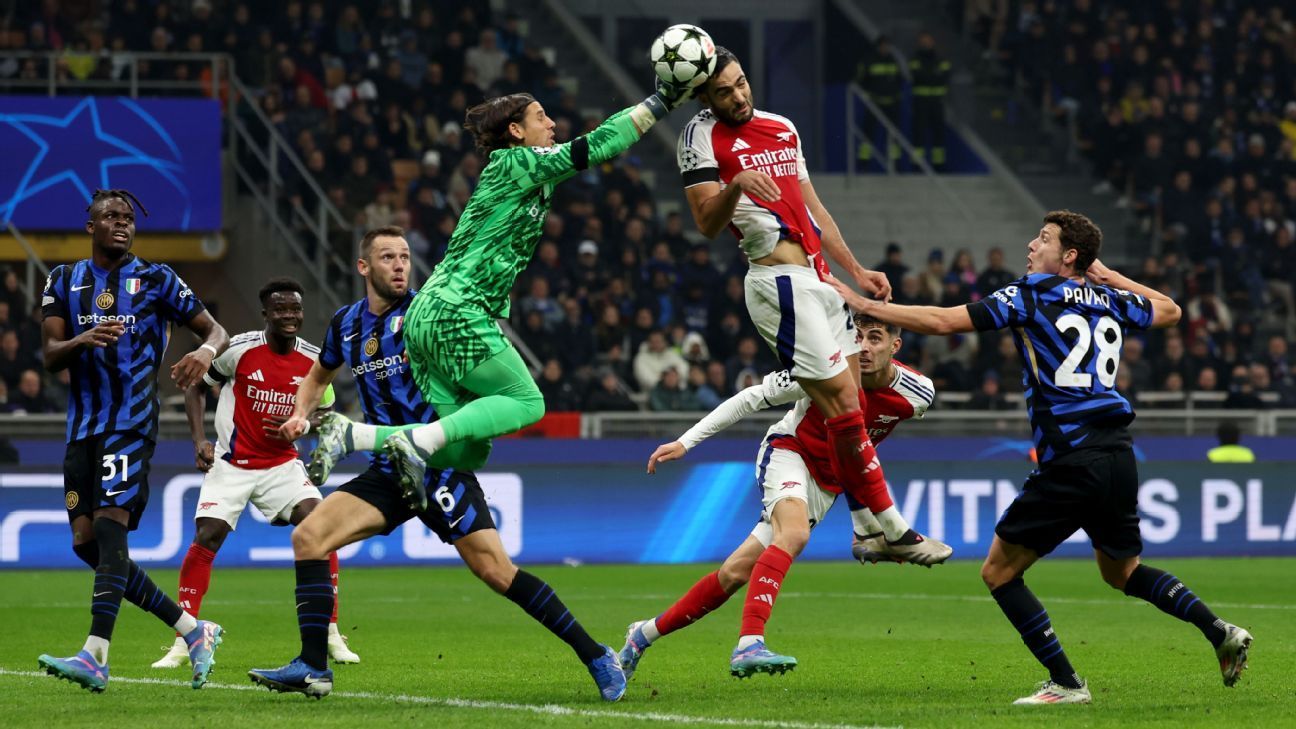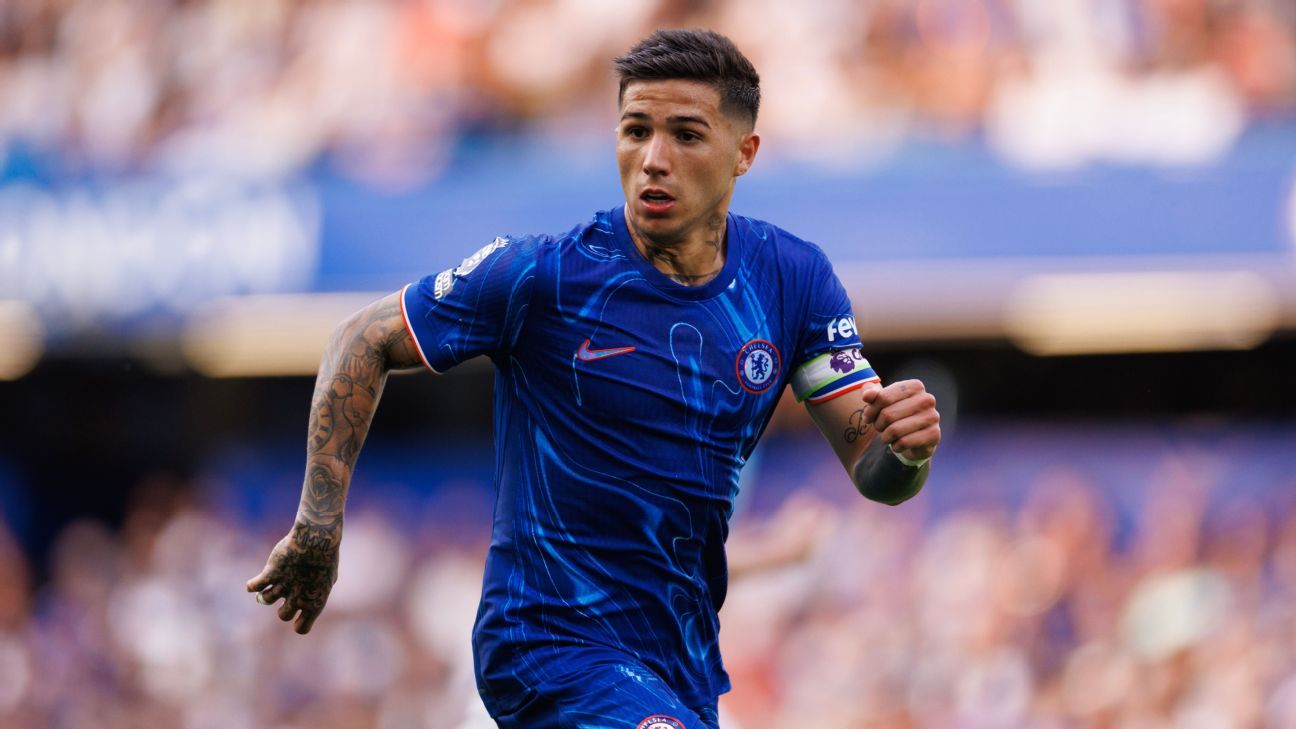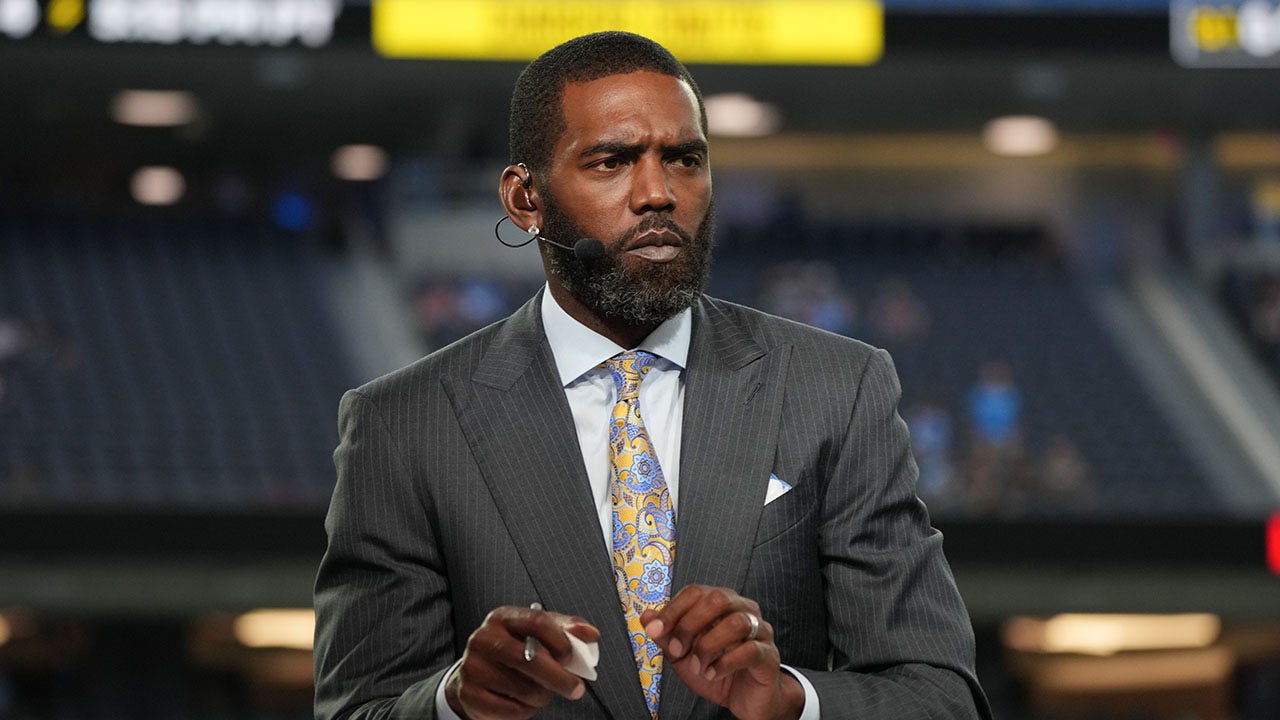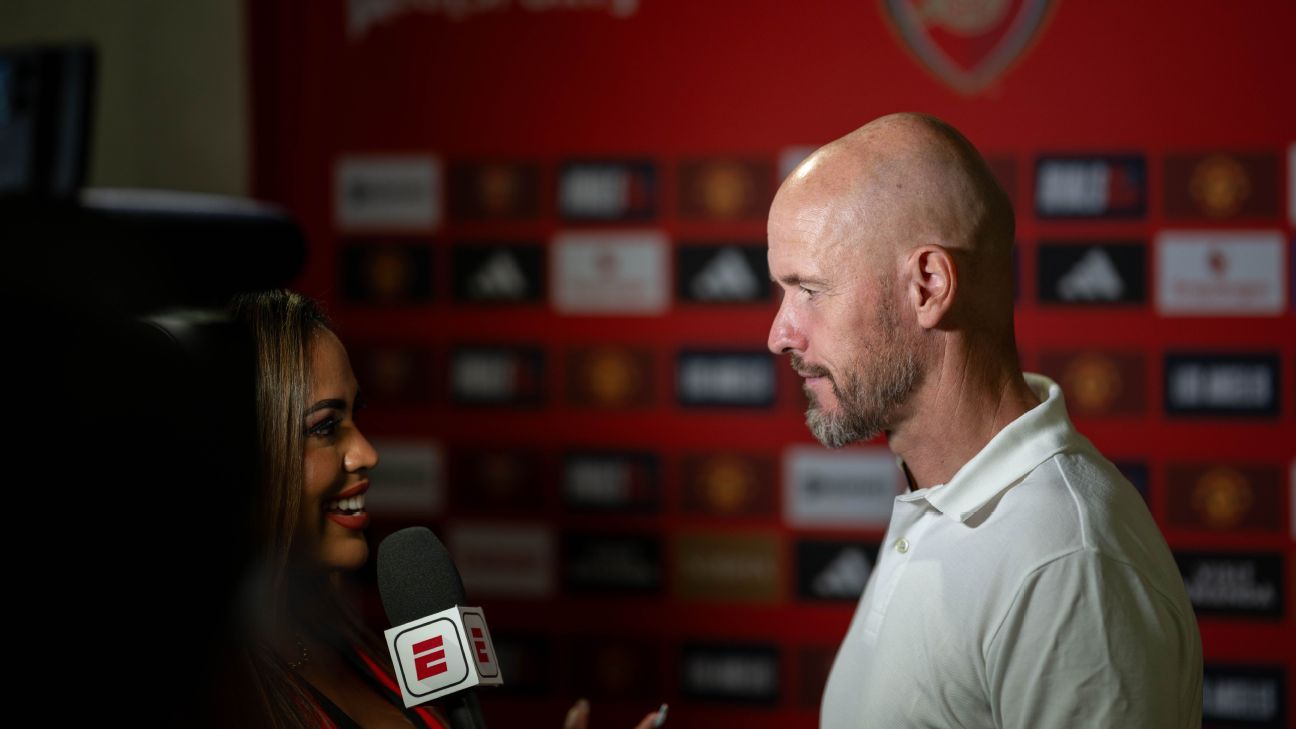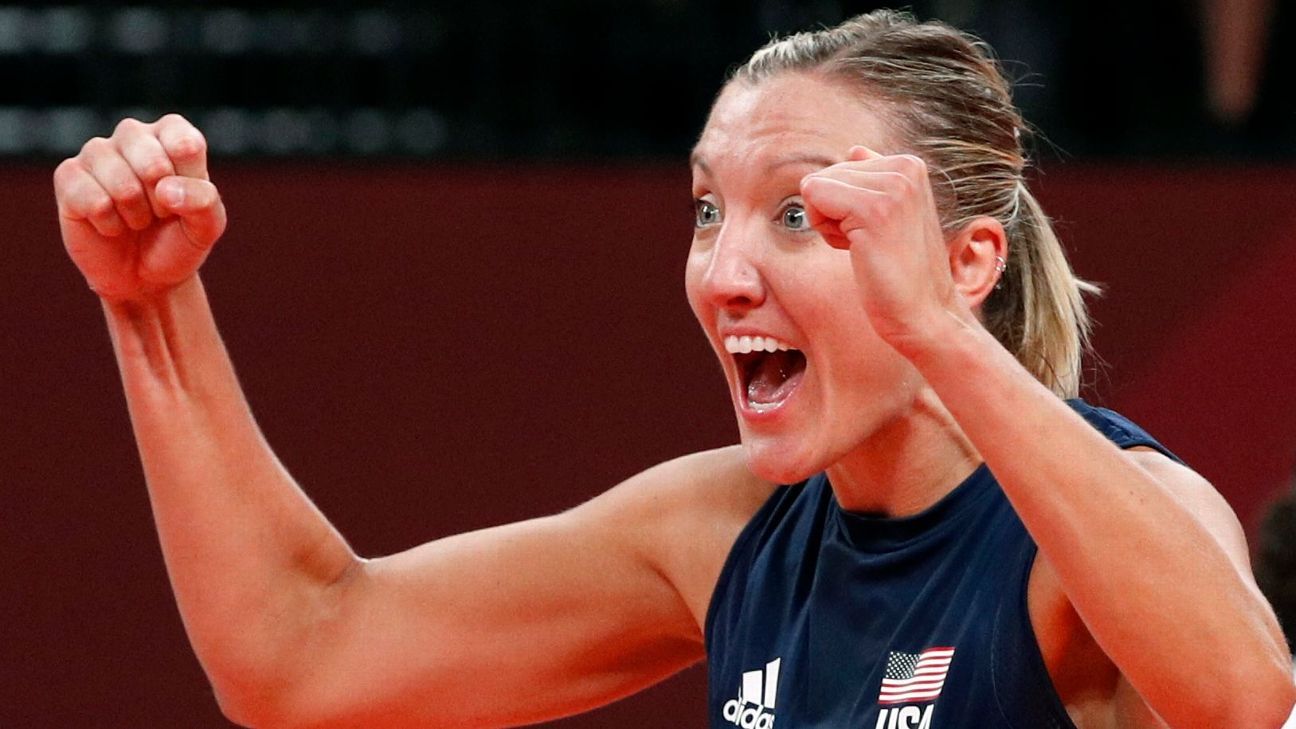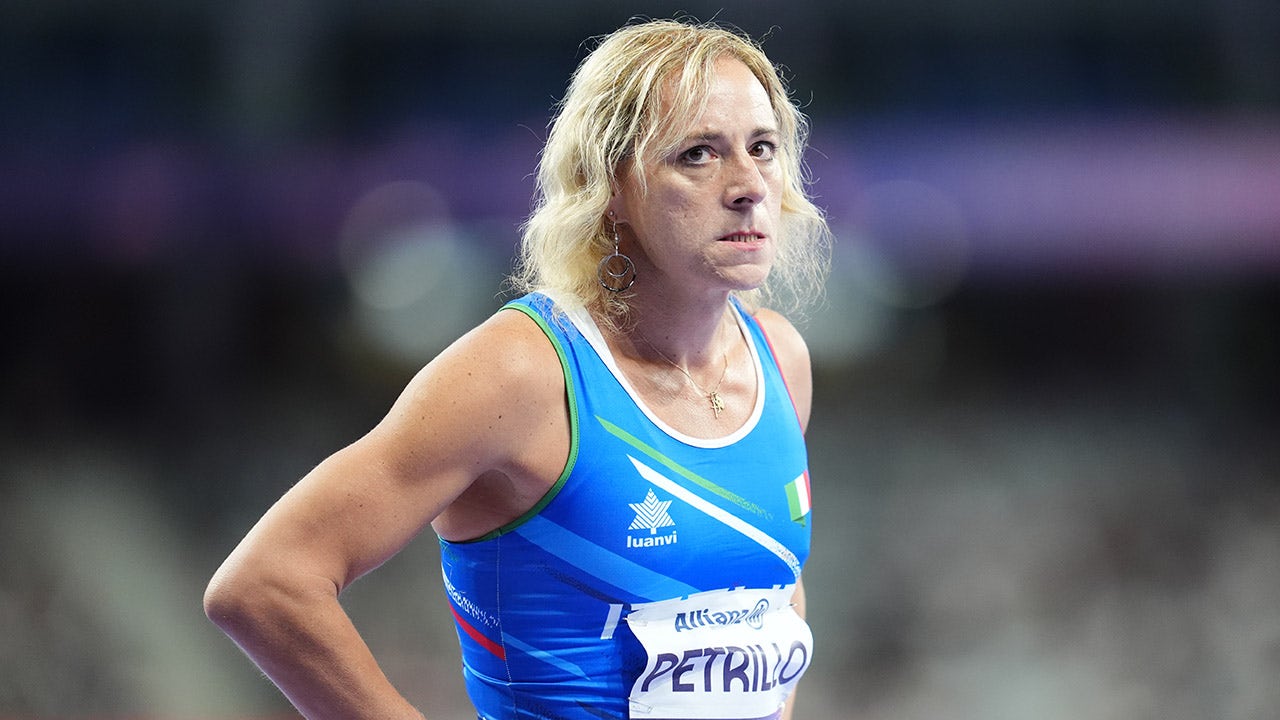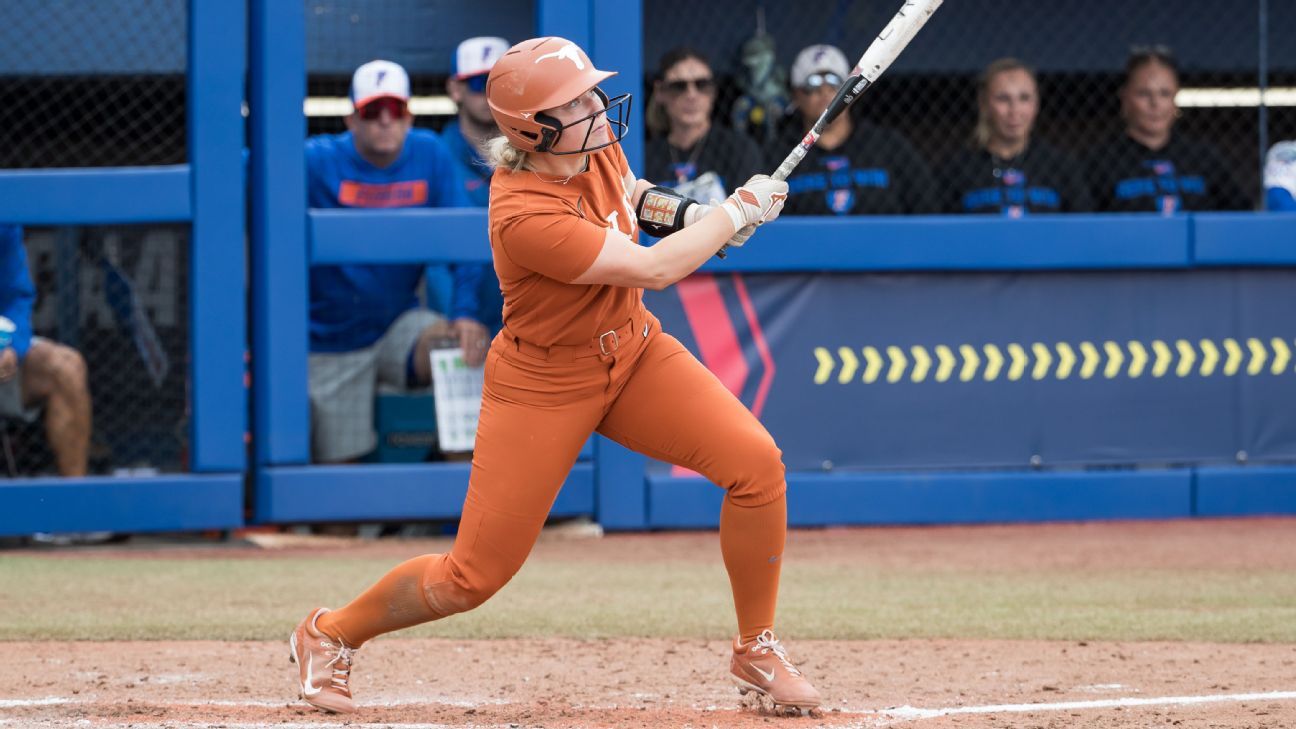Manager Mikel Arteta was furious over two refereeing decisions after Arsenal suffered a 1-0 defeat to Internazionale in the UEFA Champions League on Wednesday.
The Gunners were denied a penalty when Inter goalkeeper Yann Sommer connected with Mikel Merino's header, only for Merino to concede a penalty for a handball soon after.
“I don't understand [the handball decision]”Arteta said. “There is no danger at all. You can't react because the ball is too close. But it's okay. They decide it's a penalty.
“But if that is a penalty, then Merino's, where [Sommer] Punching him in the head has to be a 1,000% penalty. “These are the margins in this game and it is very difficult to accept.”
But was Arteta's anger misplaced or should VAR have intervened?
Possible penalty: Sommer's tackle on Merino
What happened: The game was in the 28th minute when Gabriel Martinelli launched a cross into the area from the left flank. Mikel Merino got to the ball first, but headed it, and goalkeeper Yann Sommer made contact with the Arsenal player's head in an attempt to clear it. The Romanian referee Istvan Kovacs signaled a goal kick and the VAR, Christian Dingert, controlled a possible penalty.
VAR decision: No penalty.
VAR review: Goalkeepers have the right to run out and fight for the ball with their fists, but at the same time they must be aware of the players around them.
It's hard to be sure, but Sommer may have lightly touched the ball before it left Merino's head. Still, that wouldn't eliminate the possibility of a penalty being imposed if the challenge is deemed reckless or dangerous.
In UEFA competitions, where there is a much lower threshold for fouls, we would expect to see a penalty in a situation like this. So you can absolutely understand Arteta's frustration.
Sommer makes full contact with Merino's head, clearing it by pushing it back, and the Arsenal player falls to the ground holding his head.
The VAR has decided that this is normal contact in football; a collision with the goalkeeper as part of a genuine attempt to play the ball and there was not enough in it to be considered a reckless act.
At Euro 2020, French goalkeeper Hugo Lloris conceded a penalty when he came out and hit Portuguese midfielder Danilo in the head.
At the 2022 World Cup, Argentina were awarded a penalty against Poland when goalkeeper Wojciech Szczesny caught Lionel Messi with an outstretched arm. Szczesny came out to claim a cross in the 36th minute, Messi reached the ball first with his head, but then Szczesny collided with the striker. The VAR, Paulus Van Boekel of the Netherlands, advised reviewing the penalty. But the contact was so slight that the decision seemed harsh.
Watching league play last season, Chelsea goalkeeper Robert Sanchez came out for a cross and crashed into Arsenal's Gabriel Jesus. The referee did not award the penalty on the field, and the Premier League Key Match Incident Panel said the only thing that saved it from being a VAR error was a player offside in the build-up.
Possible cancellation of penalty: Merino's hand
What happened: Inter Milan were awarded a penalty in first-half added time when Hakan Çalhanoglu put a ball into the area and when Mehdi Taremi tried to help, it hit Merino's hand. Referee Kovacs pointed to the penalty spot.
VAR decision: The penalty is expected, scored by Çalhanoglu.
VAR review: English football fans have isolated themselves from handball penalties this season. So far, only one penalty has been awarded in the Premier League in 100 games: the VAR against Aston Villa's Matty Cash at Fulham.
Referees are putting all their attention into whether a player has the right to have arms, considering that handball should only be penalized if a player's arm is completely outside the body and creates a clear barrier. Villa's Cash had his arm fully extended, but there were still questions about the proximity.
The Premier League is certainly the outlier, with the Champions League having the highest frequency of penalties in handball of any competition, although slightly ahead of Ligue 1.
Merino was right next to Taremi but his arm was in a raised position and he blocked the ball from passing, so according to the UEFA definition he is expected to be penalized.
The main frustration is that many competitions now have their own interpretation of wording, whether lenient like the Premier League to really strict like the UCL and France. It will be difficult for Arsenal fans to accept as the league has reverted to the interpretation used before the 2018 law change (which caused such a huge increase in spot kicks). However, it is effectively a two-tier law, as Arsenal discovered on Wednesday. .
Possible red card: Arteta for interfering in play
What happened: The match was in the 63rd minute when the ball ran down the touchline and, as Matteo Darmian approached it, Arteta collected it before it went out of play. Referee Kovacs showed the yellow card, but should it have been red?
VAR decision: No red card.
VAR review: By the letter of the law, this should be a red card, as Rule 12 states: “Sending off offenses include (but are not limited to) entering the field of play to interfere with play.”
We have seen two such red cards this year in British football: that of West Bromwich Albion manager Carlos Corberán and Kilmarnock manager Derek McInnes.
The referee opted to use his discretion and only show Arteta a yellow card as the ball appeared to be out of play, but by rights this should have been a red.
However, VAR is not tasked with intervening in matters where the referee evidently saw the incident but decided not to show the red card.
Possible penalty cancellation / red card: Mings handball
What happened: Club Brugge received a penalty in strange circumstances in the 50th minute. Aston Villa took a goal kick and goalkeeper Emiliano Martínez passed it to defender Tyrone Mings… who thought the game had not started yet and collected the ball. Referee Tobia Stieler pointed to the penalty spot, but took no disciplinary action against Mings.
VAR decision: No red card. The penalty is expected, scored by Hans Vanaken.
VAR review: Crazy situation, especially considering we saw a very similar situation in April that didn't result in a penalty.
In the previous example, Arsenal were playing Bayern Munich in the quarterfinals. Goalkeeper David Raya had the ball in the middle, then passed it to Gabriel, who picked up the ball and put it back before returning it to Raya. Swedish referee Glenn Nyberg chose to use his discretion (the spirit of the law, as noted in Law 5, gives the referee some freedom in certain circumstances to manage the game) and allowed the kick to be taken again, instead to sanction a penalty.
That was not the case for Villa, as Stieler decided to take the penalty, and many would say Nyberg was wrong not to do so as well.
There is one key difference: in the game against Arsenal no Bayern player put pressure on the ball, so it could be argued that it was a mistake without consequences and that the referee was fair in allowing the replay. In the Villa game, Ferran Jutglà ran into the area to close down Mings just as Martínez touched the ball.
Mings was already on a yellow card and this was a deliberate handball, so why wasn't he shown a red card, or at least a second yellow? That is the real question for VAR, because a penalty is undoubtedly correct under the law.
Deliberate handball is not in itself an offense that requires disciplinary action, such as when a goalkeeper makes a handball outside the area. It's about the impact on the opposition.
Stieler could have chosen to caution Mings if he felt Jutglà was being prevented from playing the ball, but VAR cannot rule on yellow cards.
Then it all comes down to a red card and whether the VAR deemed Mings' handball to be an infringement denying an obvious scoring opportunity (DOGSO). Jutglà was approaching the ball but was not running with rhythm, so he would surely catch it if Mings had not handled it. But it's not a classic case of DOGSO where an attacker passes to a defender who commits a foul; Mings would still be there to challenge. So the only real argument is a yellow card for possibly stopping a promising attacker, something VAR cannot give.
Although Jutglà was racing to close, Mings still had plenty of time, making his decision to grab the ball even more baffling. He shouldn't have thought that Martínez had put the ball in the player's direction. But the referee could have easily given him a second yellow card.
Whatever one thinks about the merits of the two individual incidents, it is difficult for fans to understand that the two could have opposite results: one a replay and the other a penalty.

